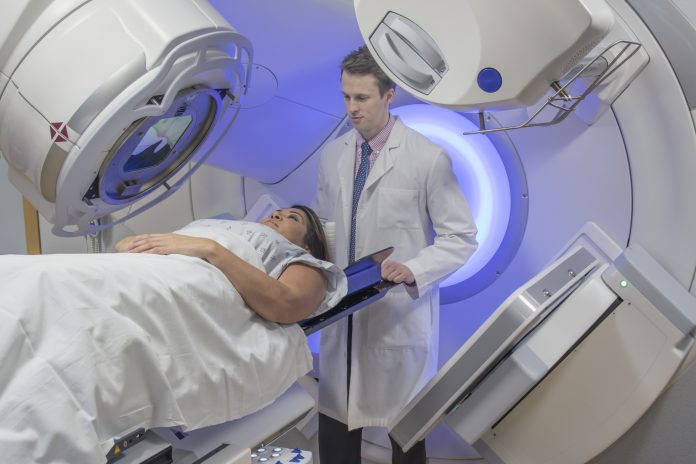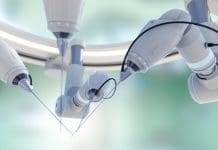New radiotherapy machines will cut waiting times and help 4,500 more patients get cancer treatment faster
Following a £70 million funding boost through the UK Government’s Plan for Change, upgraded radiotherapy machines will be rolled out across 28 hospitals to cut the rounds of radiotherapy needed and reach cancers in harder-to-treat areas like the chest, abdomen, and pelvis.
Modern radiotherapy machines can reduce treatment delays
Linear accelerator (LINAC) machines use modern technology to minimise delays in cancer treatment and reduce the number of hospital visits a patient requires by half, helping reduce waiting lists faster.
The machines are safer for patients and can more precisely target tumours, causing less damage to surrounding healthy tissues.
The new radiotherapy machines will be rolled out at hospitals nationwide starting in August 2025. By replacing the older machines, up to 13,000 appointments could be saved from being lost due to equipment breakdown.
By March 2027, up to 27,500 additional treatments per year will be delivered, including up to 4,500 receiving their first treatment for cancer within 62 days of referral, helping to treat more cancer patients faster.
Health and Social Care Secretary Wes Streeting said: “There is a revolution in medical technology which can transform treatment for cancer patients. But NHS hospitals are forced to use outdated, malfunctioning equipment thanks to 14 years of underinvestment under the previous government.
Thanks to the investment this government is making in our NHS, we will provide more cancer patients with world-class, cutting-edge care.
By reducing the number of hospital visits required and preventing cancelled appointments, these state-of-the-art radiotherapy machines free up capacity so that thousands more patients are treated on time.
As a cancer survivor, I know just how important timely treatment is. These machines are part of the investment and modernisation that will cut waiting times for patients through our Plan for Change.”
Prioritising hospitals using outdated technology
Hospitals using radiotherapy machines that are older than 10 years will take priority, reducing the number of cancelled appointments due to faults. It will also increase the availability of Stereotactic Ablative Radiotherapy (SABR) cancer treatments, which can more precisely target tumours.
NHS national clinical director for cancer Professor Peter Johnson said: “Radiotherapy is essential for many cancer patients, so it’s great news that the investment in new machines means that some will need fewer rounds of treatment, as we bring in more sophisticated techniques.
These machines will deliver more precise treatment for patients, which helps them to recover sooner, as well as enabling the NHS to treat people more efficiently as we continue in our efforts to catch and treat more cancers faster.”
The new LINAC radiotherapy machines were allocated across England by Specialised Commissioning teams at NHS England. This will help improve health inequalities by ensuring every radiotherapy service has the modern equipment needed to offer innovative radiotherapy treatments.
Senior policy manager at Cancer Research UK, Matt Sample, said: “All cancer patients, no matter where they live, should have access to the best treatment, so it’s great to see investment in cutting-edge equipment for hospitals across the country.
Modern LINAC machines can offer more efficient, targeted treatment with less side-effects for patients, which is why it’s vital that there is sustained funding to replace them routinely.
The government has a huge opportunity in its upcoming National Cancer Plan for England to tackle unequal access to optimal treatment, and we look forward to working with them to help give every patient the care they deserve.”
Kate Seymour, Head of External Affairs at Macmillan Cancer Support, says: “Today marks an exciting step forward for cancer treatment in England. Many people across the country are facing long delays in getting care, but today, it proves that better care is possible.
Investment in cutting edge technology is essential to bring down waiting times and help more people with cancer get the best care the UK has to offer, whoever and wherever they are.”
Which hospitals will be receiving new machines?
The 28 trusts receiving an upgraded radiotherapy scanner are:
– Mid and South Essex NHS Foundation Trust
– Sheffield Teaching Hospitals NHS Foundation Trust
– Northampton General Hospital NHS Trust
– United Lincolnshire Hospitals NHS Trust
– University Hospitals Plymouth NHS Trust
– Royal Free London NHS Foundation Trust
– Cambridge University Hospitals NHS Foundation Trust
– Hampshire Hospitals NHS Foundation Trust
– The Royal Marsden NHS Foundation Trust
– Worcestershire Acute Hospitals NHS Trust
– Lancashire Teaching Hospitals NHS Foundation Trust
– The Newcastle Upon Tyne Hospitals NHS Foundation Trust
– East Suffolk and North Essex NHS Foundation Trust
– Royal Berkshire NHS Foundation Trust
– Imperial College Healthcare NHS Trust
– Maidstone and Tunbridge Wells NHS Trust
– University Hospitals Bristol and Weston NHS Foundation Trust
– South Tees Hospitals NHS Foundation Trust
– The Christie NHS Foundation Trust
– Gloucestershire Hospitals NHS Foundation Trust
– Nottingham University Hospitals NHS Trust
– Royal Cornwall Hospitals NHS Trust
– The Clatterbridge Cancer Centre NHS Foundation Trust
– University Hospitals of Derby and Burton NHS Foundation Trust
– Guy’s and St Thomas’ NHS Foundation Trust
– University College London Hospitals NHS Foundation Trust
– Barts Health NHS Trust
– Royal Surrey NHS Foundation Trust.











